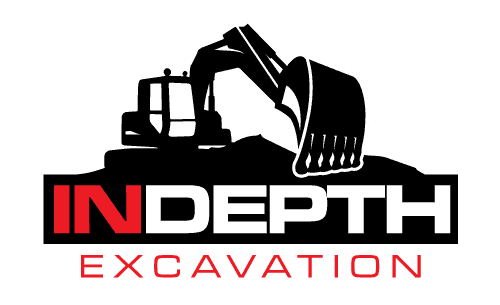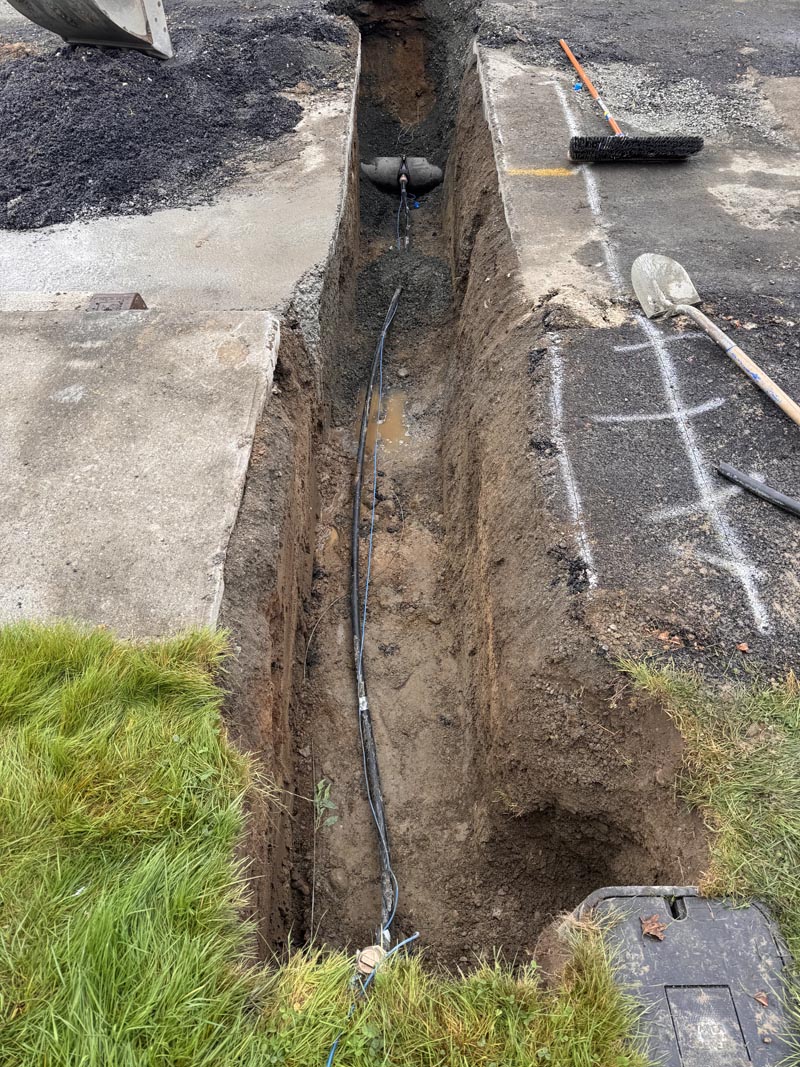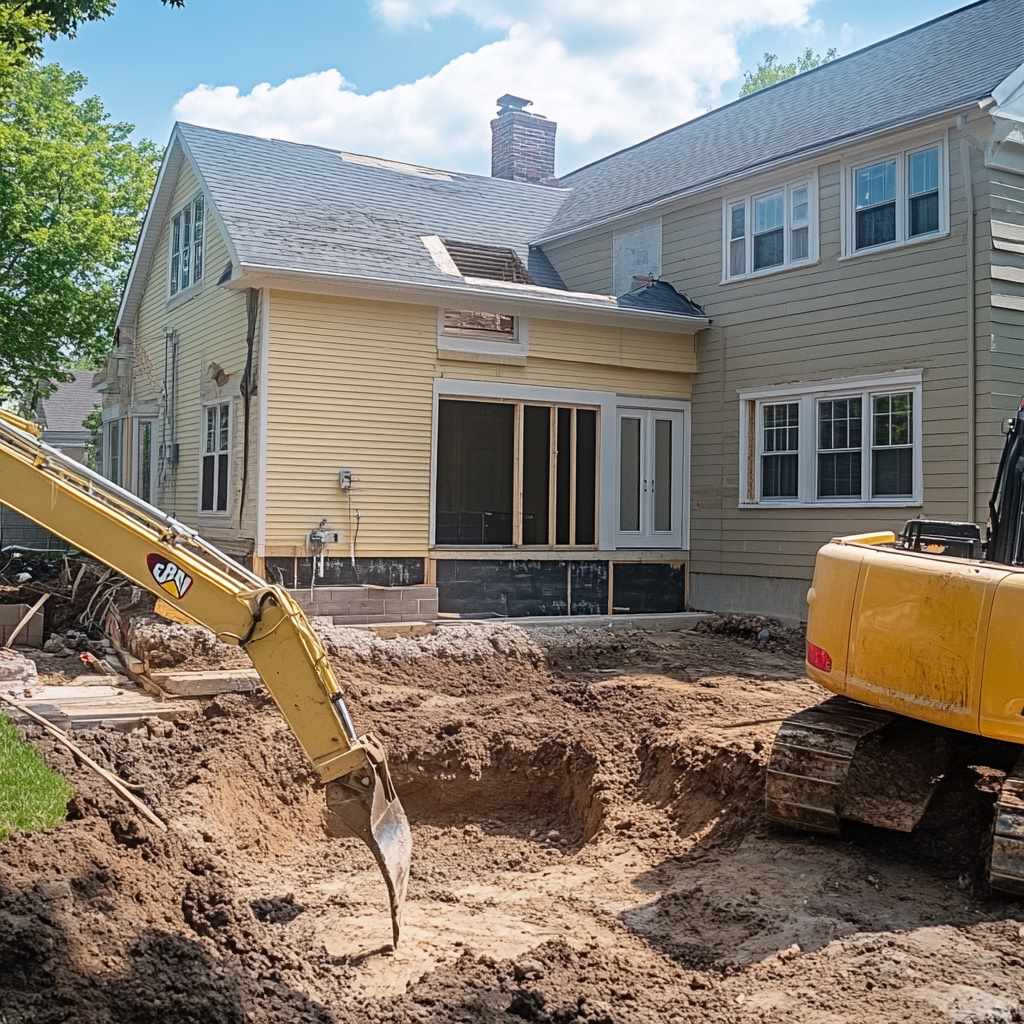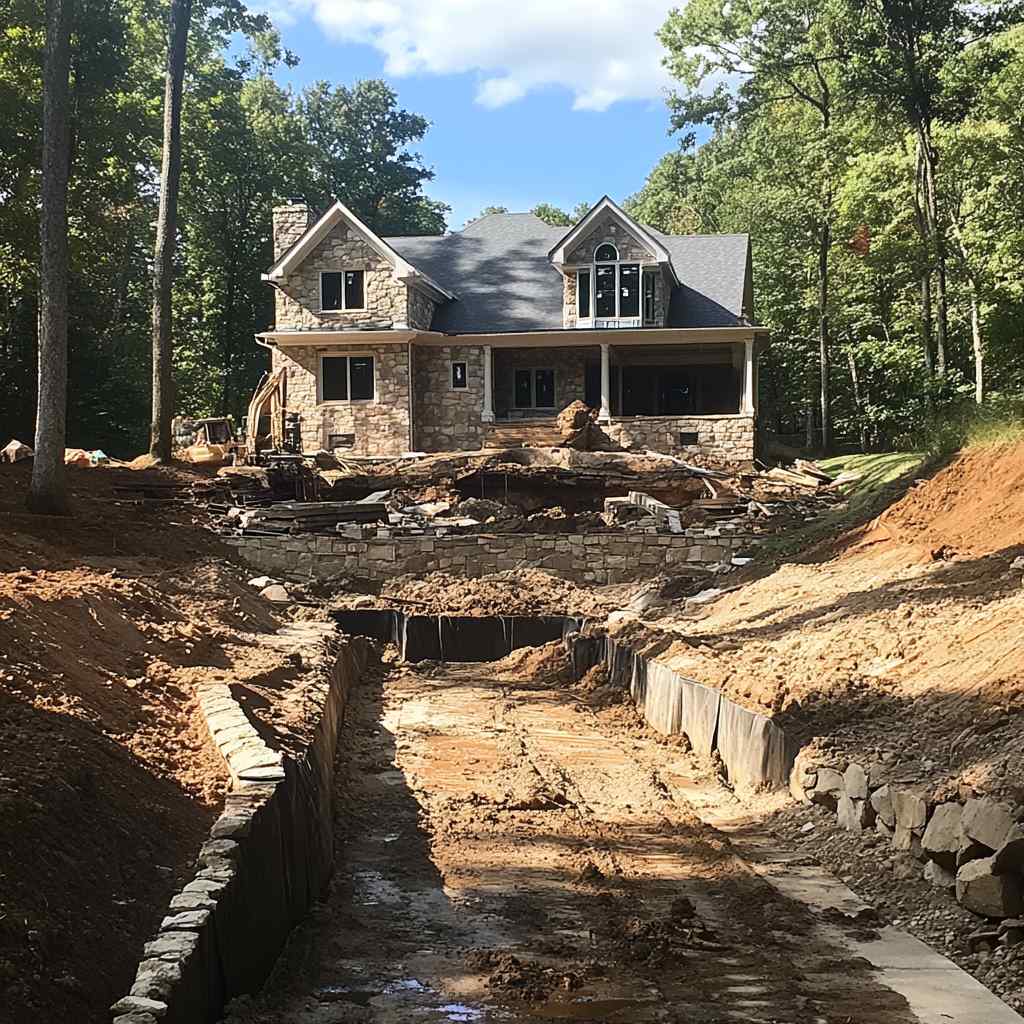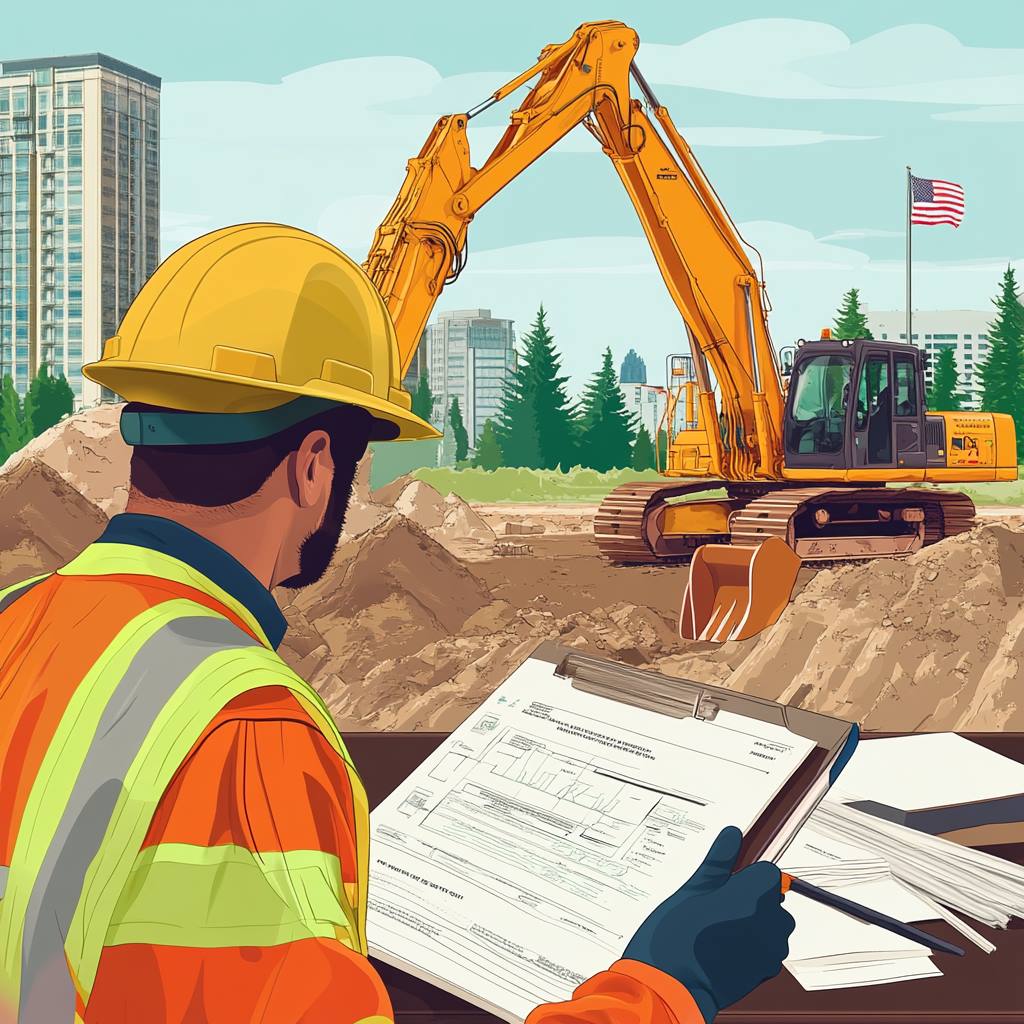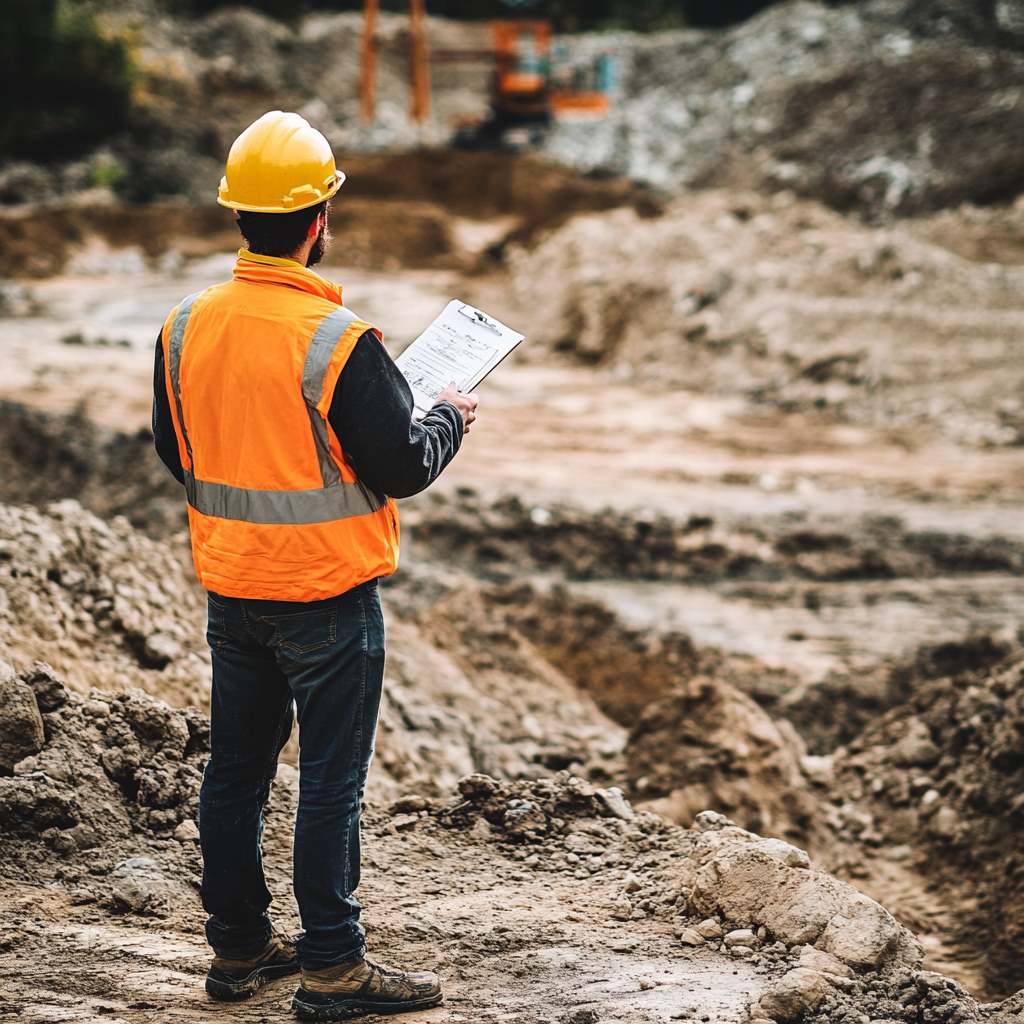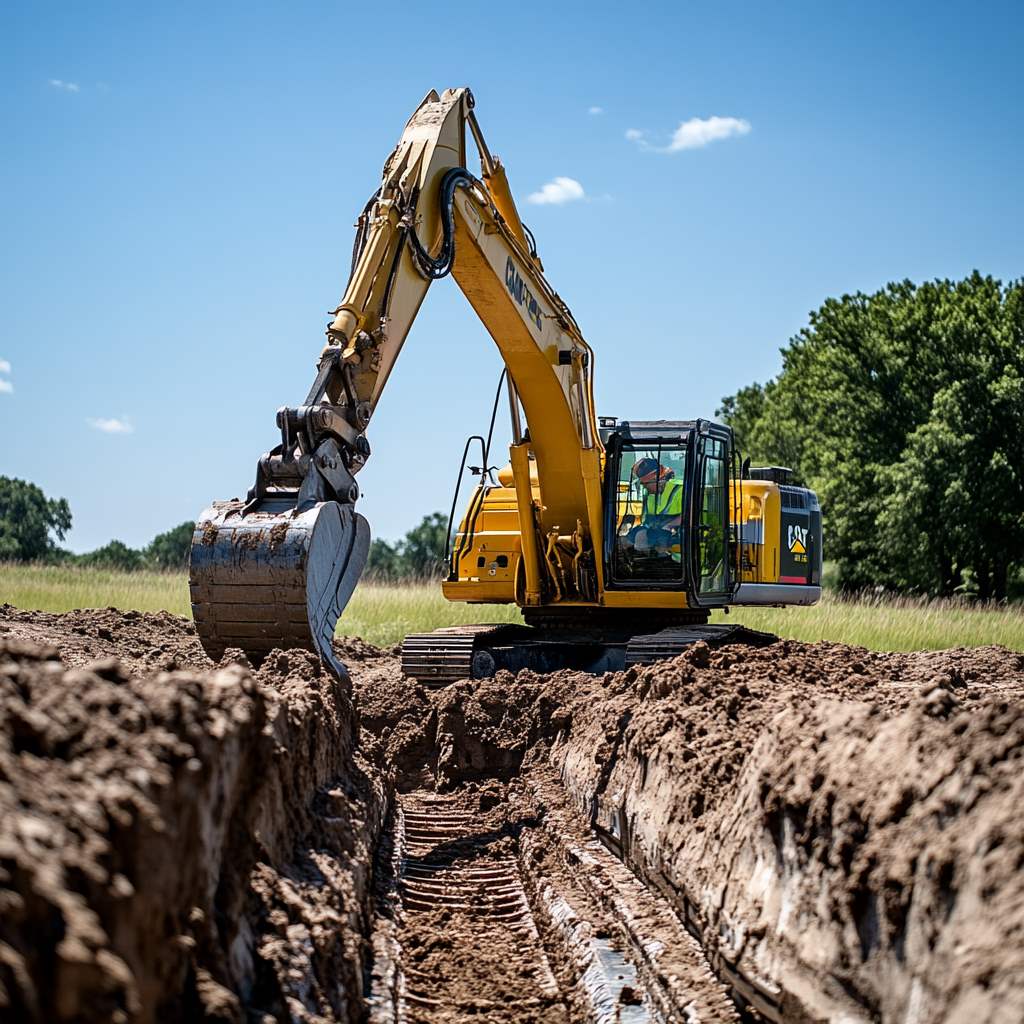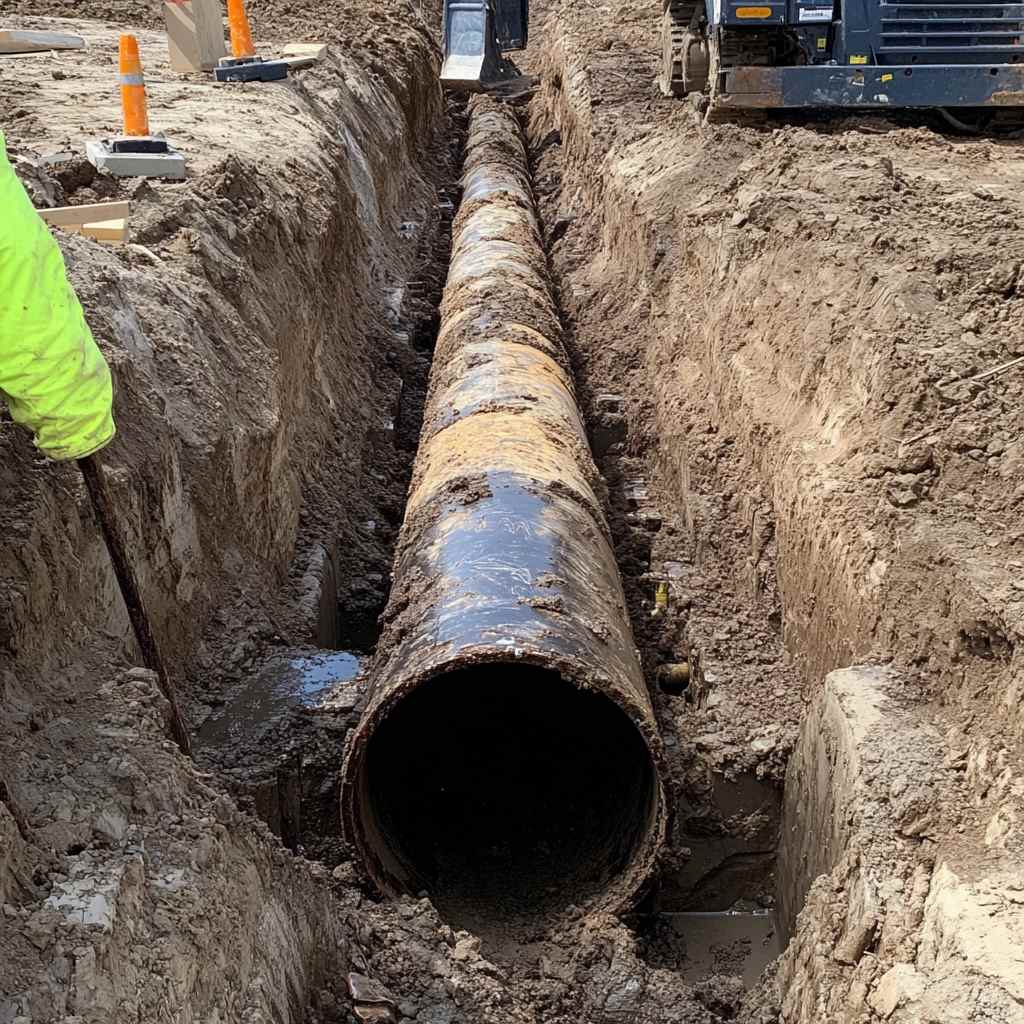Excavation is the backbone of road and highway construction, laying the groundwork for everything that follows. You create roads by clearing away vegetation and debris to accurately grade the land, every action needs to be performed with accuracy and care.
Choosing Indepth Excavation for your next road construction project guarantees that your roads last for ages to come, providing smooth rides. Saving you time in the long run.
Understanding Excavation in Road and Highway Construction
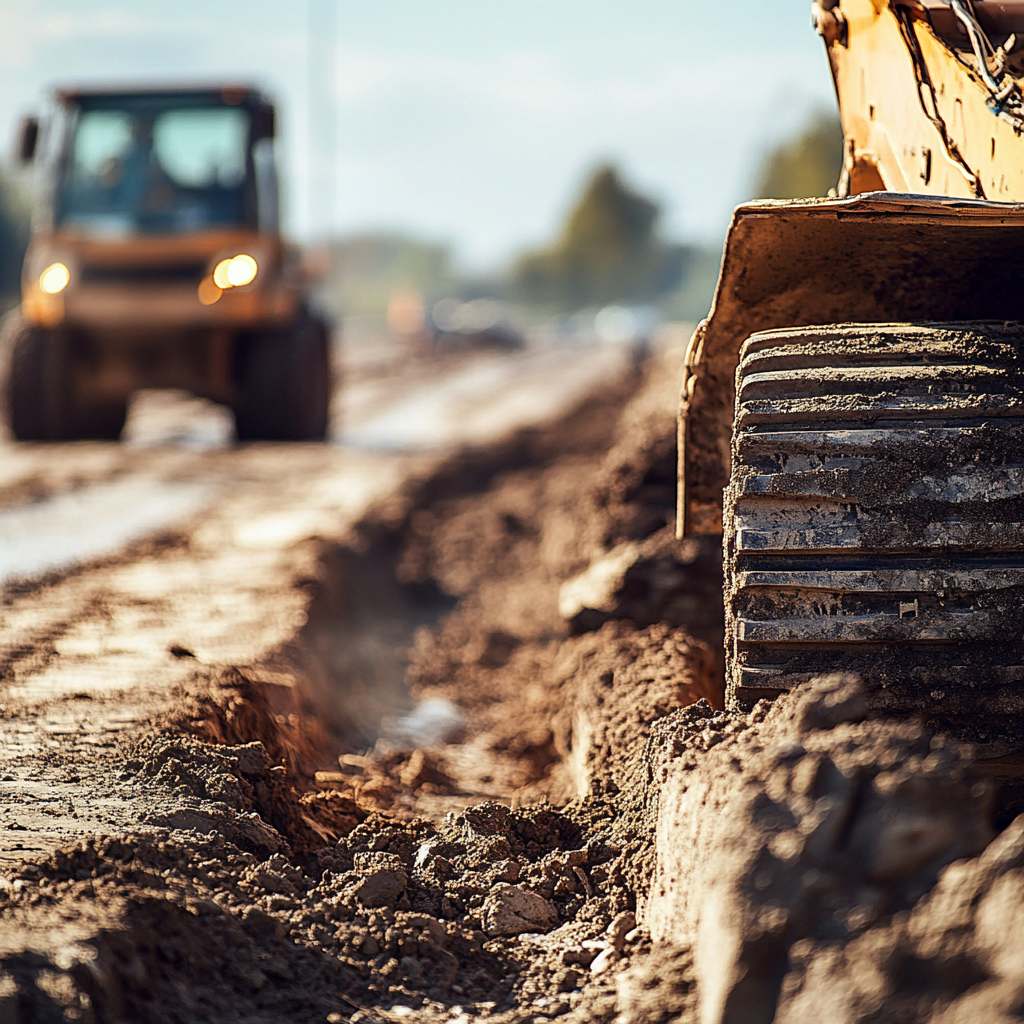
Excavation is essential in road and highway construction. It involves removing dirt, rocks, and other materials from a site. Ideally, you are going to want even roads and highways.
Even if a road looks straight, it needs to work with the natural curvature of the earth, and any mistake in grading can lead to future damage. Take one small indentation: snowplows hit it at an angle, pressure builds over time, and that spot turns into a pothole. It doesn’t take long for that flaw to turn into a repair bill.
Types of Projects:
- Highways: These large-scale projects require extensive excavation.
- Local roads: Smaller in scope but still need precise excavation.
- Interstate connections: Combine elements of both highways and local roads.
Key Steps in Excavation:
- Site clearance: Remove vegetation and topsoil.
- Subgrade preparation: Expose and test the formation level.
- Construction: Use bulldozers, tractor shovels, and other equipment.
Importance of Excavation:
Accurate excavation promotes safety. Roads are less likely to deteriorate.
Well-executed excavation can handle heavy traffic loads better for longer.
I lived in a very small town where they always made plans to fix the roads of the little community, but we always started with our busiest one. The idea was it was the most severely damaged, so we had to fix it first.
Time and time again we would fix it, for it to be riddled with potholes again come spring, turned out, whenever the company that was hired would come out, they’d do patchwork jobs, or minimal spot fixes. During winter, the way my town was elevated caused issues with snow plows, causing them to drop it just a tad too low to the ground for a particular part of that road.
It took years and observations from me and a few other people my age to get the proper people noticing it as well (We had a nearby resident complain about the grating sound from the plow itself), before my town’s council wrote out a detailed plan to fix the roads.
Planning and Preparation
A successful excavation project begins long before the first piece of equipment rolls in. Here’s what needs to happen before any digging starts:
- Permits and Compliance: Roadwork needs sign-offs from local and federal agencies. Don’t skip this step, it’s not just red tape, it’s protection.
- Site Assessment: Survey the land. Know what you’re dealing with, elevation shifts, existing structures, soil type.
- Soil Testing: Not all soil is made equal. Clay-heavy ground, sandy stretches, or areas with groundwater each demand their own approach.
- Route Mapping: Plan the excavation path based on your survey and testing. Cut too deep or too shallow and you risk future structural issues.
The Excavation Process
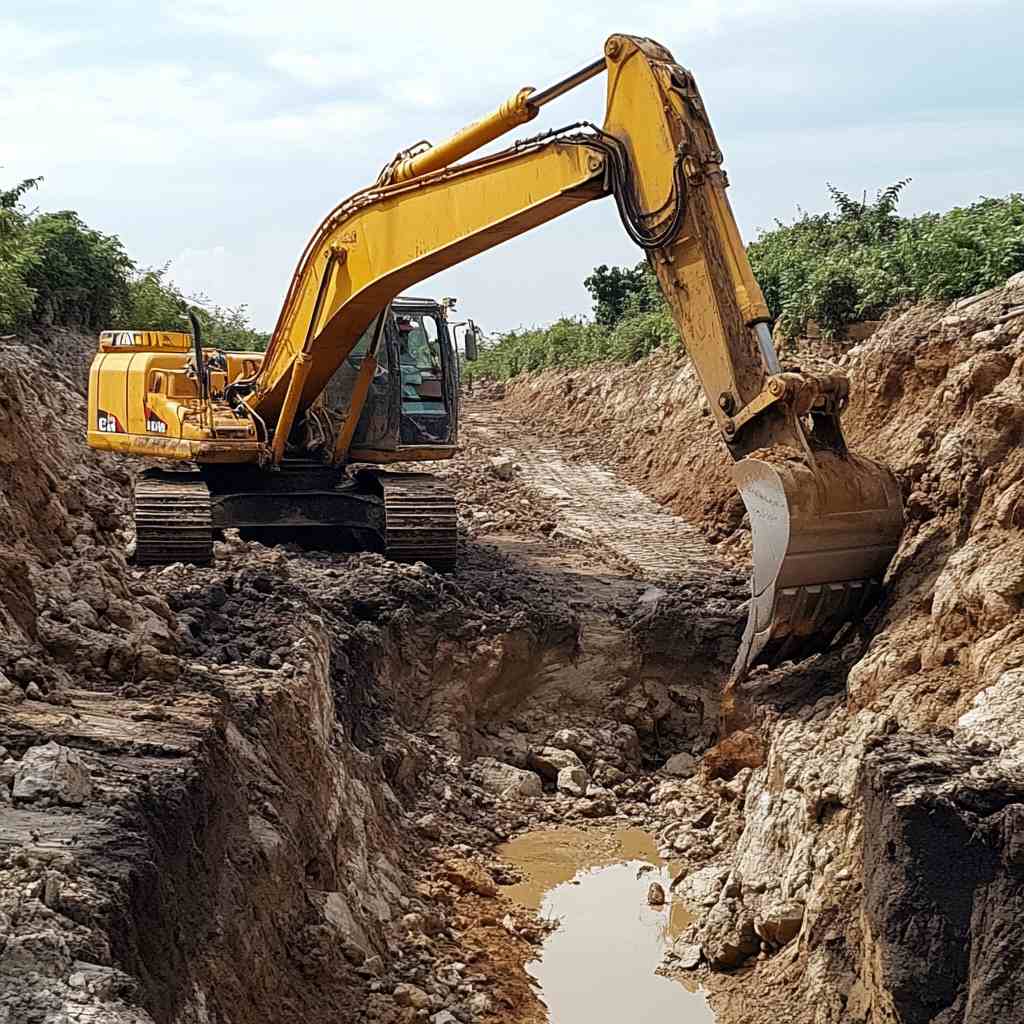
To start the excavation for road and highway construction, site clearing is essential. Remove all vegetation, debris, and unnecessary objects.
Once the plan is in place, excavation follows a series of calculated moves:
- Site Clearing – Strip away vegetation, rocks, debris. The land must be clean and accessible.
- Cut and Fill – Excavate high spots and fill low ones to form a smooth base.
- Grading – Use graders and compactors to level the site and shape the base.
- Drainage Installation – Lay out culverts, trenches, and slope systems to control water flow.
- Subgrade Stabilization – Depending on the soil, you may need to stabilize it with lime, cement, or geogrid material.
Addressing Common Challenges
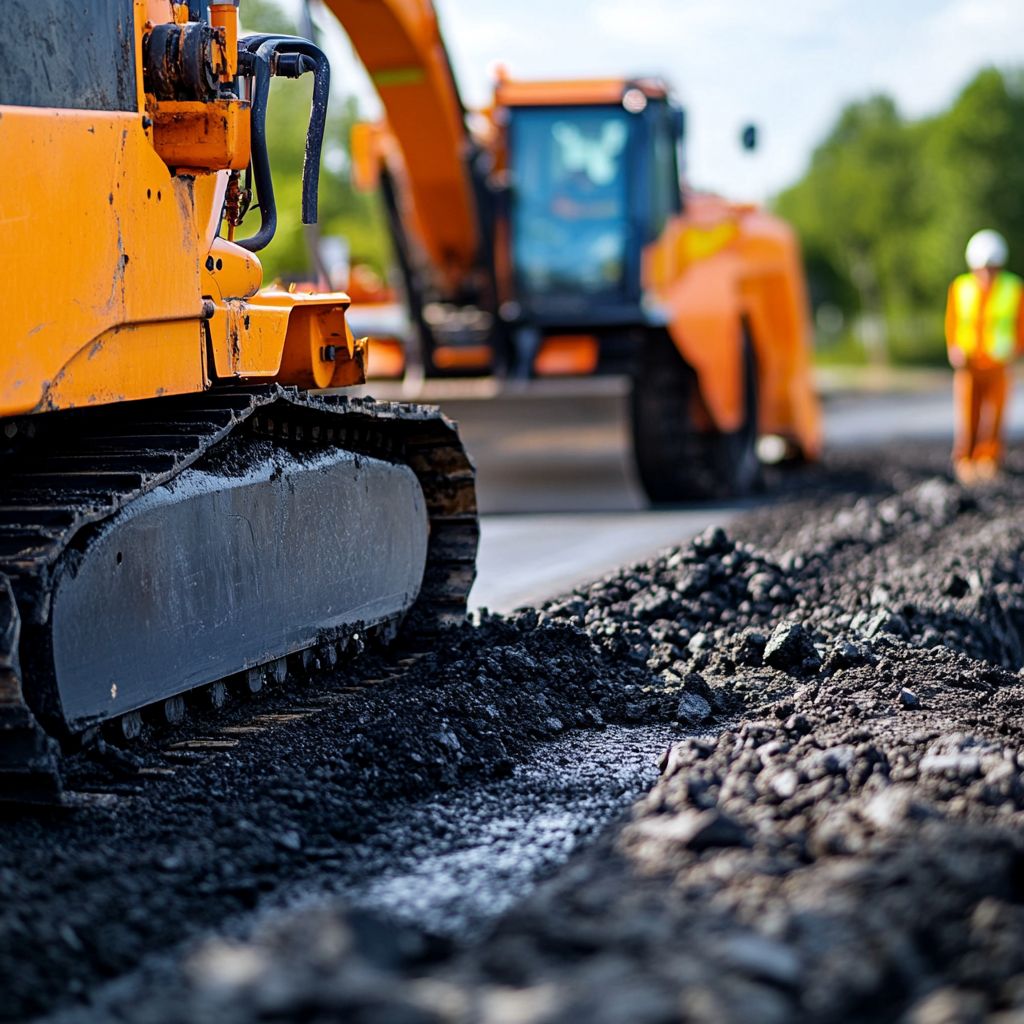
Handling Different Soil Types and Conditions
When you begin excavation, it’s vital to assess the soil. Soil types can vary from sandy to clay. Each type presents its own challenges.
Sandy soil can collapse easily, while clay can be tough to dig through. Use soil testing to guide your approach. Using the right machinery for each soil type helps guarantees a stable foundation.
Managing Groundwater and Drainage Issues
Water can be a major obstacle during excavation. You may encounter groundwater that makes the site muddy and unstable.
Plan for effective drainage systems. Installing temporary pumps can help remove excess water if you can.
It’s best to consult with professions when meeting with excessive amounts of groundwater.
Excavation Stability and Preventing Erosion
Excavation sites must remain stable to avoid cave-ins. Shoring up the sides using braces or trench boxes can prevent collapses. To prevent erosion, especially in rainy conditions, cover exposed soil with tarps.
Dealing with Existing Underground Utilities
Before digging, always check for underground utilities like gas lines and cables. Contact local utility companies for maps and assistance. Use detection equipment, such as ground-penetrating radar, to locate these utilities. Carefully mark their positions and dig around them to avoid damage.
Cost Factors in Road and Highway Excavation
Excavation for road and highway construction can be costly. Understanding the factors that affect costs makes sure the project stays within budget.
Breakdown of Typical Excavation Costs
| Item | Cost Range ($/mile) |
| Base Excavation (¾:1 cut) | $5,000 – $10,000 |
| Base Excavation (1:1 cut) | $6,000 – $12,000 |
| Road Construction Survey | $2,650 – $3,700 |
| Culvert Staking | $100 per culvert |
Excavation costs can climb fast if you don’t know what’s coming. Here’s what plays into the final number:
- Project Size: Bigger roads mean more materials, more time, and more labor.
- Soil Conditions: Tough or rocky ground demands heavier equipment and slower digging.
- Equipment Used: Specialized machines save time but may raise upfront costs.
A rough estimate for base excavation might range from $5,000 to $12,000 per mile, depending on cut ratio and terrain. Add in surveying and culvert installation, and the total climbs quickly.
To stay on budget:
- Get a full site analysis upfront.
- Work with seasoned professionals (like our team at In-Depth Excavation).
- Plan for a buffer—surprises in the ground aren’t rare.
Role of Professional Excavation Contractors
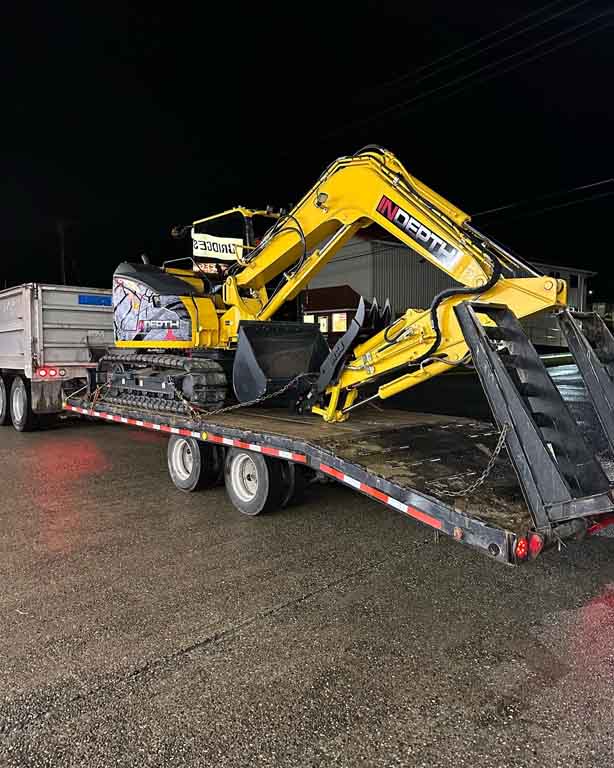
Excavation isn’t guesswork. It’s a blend of coordination, field-tested experience, and technical precision. A professional contractor doesn’t just show up with a backhoe and a blueprint, they arrive with a plan.
That means preparing the site with precision, so the project begins on the right footing, following strict safety standards that protect workers and the community, and using specialized equipment operated by skilled pros who know how to read the land and respond when conditions shift mid-project.
With In-Depth Excavation, you’re not hiring a crew for hire. You’re teaming up with a partner who’s helped shape the roads in Snohomish County, one that understands the challenges beneath the surface and knows how to build something that lasts.
Contact Us to get started today!
Advanced Techniques and Technologies
Modern excavation isn’t just about muscle, it’s about insight. Technologies like GPS and GIS mapping allow us to guide equipment with pinpoint precision, keeping grading and alignment tight from the first pass. 3D modeling helps us visualize every phase of the build before the first scoop of dirt is moved, preventing issues long before they happen.
Safety’s gotten smarter too. Enhanced helmets and high-visibility gear now include sensor alerts to warn about nearby hazards, machinery movement, or unstable ground. These innovations keep crews safe and projects on schedule.
Excavation today is about more than digging, it’s about building smarter, faster, and safer. When you’re ready to get moving, In-Depth Excavation is ready to lead the way.
Benefits at a Glance:
| Technology | Benefits |
| GPS and GIS | Precision, error reduction |
| Laser Scanning | Detailed visualization, efficiency |
| Advanced Safety Gear | Enhanced protection, hazard alerts |
| 3D Modeling | Accurate planning, better outcomes |
